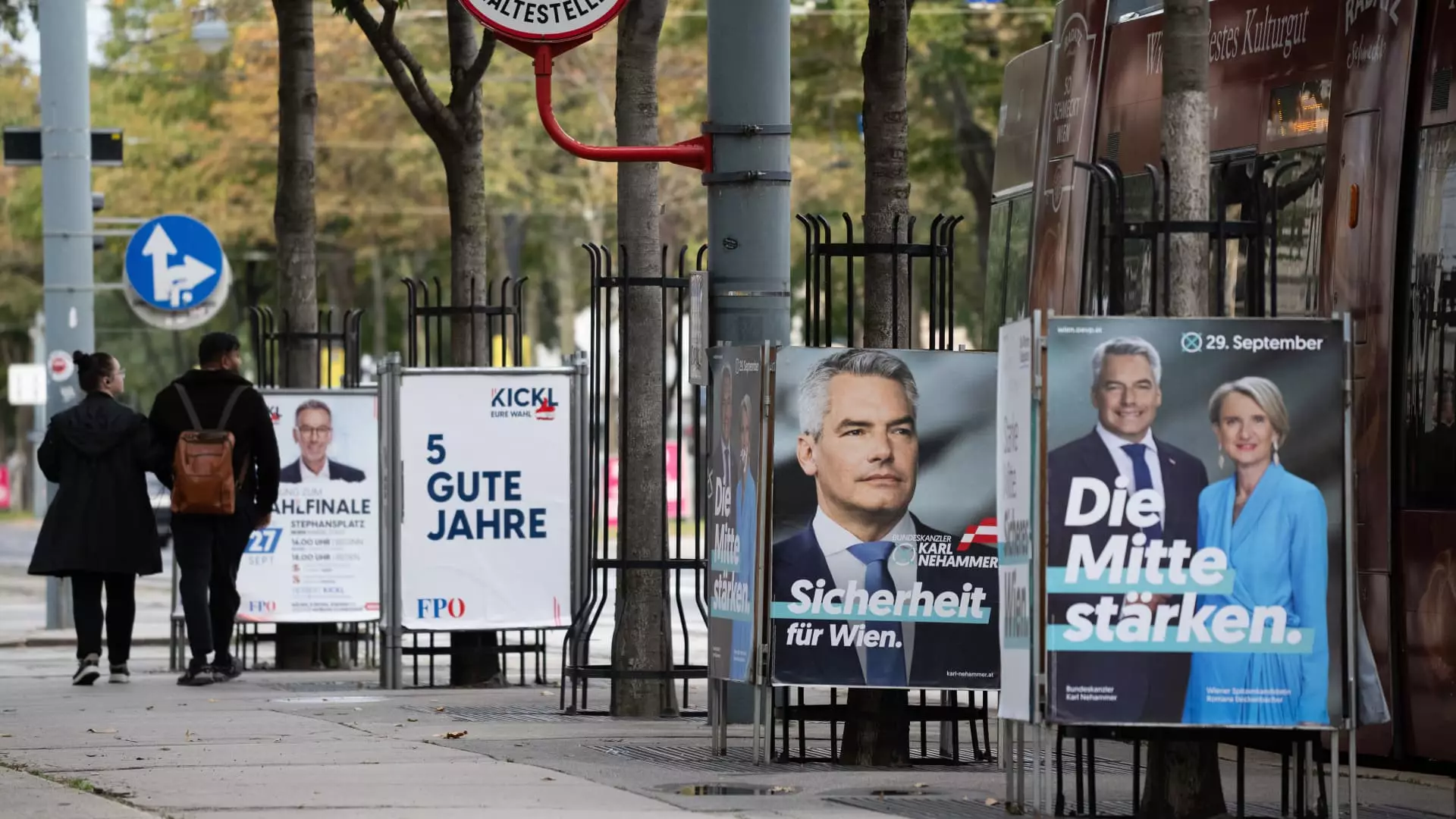The recent election in Austria has revealed a troubling trend, escalating the rise of far-right political parties across Europe. As the Freedom Party of Austria (FPÖ), with its anti-immigrant and pro-Russia policies, appears to have secured a plurality with 29.1% of the vote, it sends a clear message about shifting political sentiments within not just Austria, but also throughout the continent. In a climate where traditional political structures face significant challenges, the FPÖ’s resurgence is emblematic of the rise of populism that capitalizes on public fears related to immigration, economic instability, and a perceived loss of cultural identity.
Already, the results indicate a significant shift, with the ruling Austrian People’s Party (ÖVP) falling to second place at 26.2% and the Social Democratic Party garnering 20.4%. This election marks a marked reversal of fortunes for the FPÖ, especially considering its previous struggles that culminated in its removal from government in 2019 due to a high-profile corruption scandal. Now, revitalized by current socio-economic crises, the FPÖ finds itself back in the political limelight. However, despite this success, they fell short of an outright majority, which casts a cloud of uncertainty over Austria’s political future.
The challenges ahead for the FPÖ are stark. While they may have claimed the largest share of the vote, they will need to build a coalition government, a task made particularly difficult as most established parties have signaled their reluctance to work alongside them. The atmosphere of political discord, compounded by rising nationalist sentiments, suggests that the road to a functioning government will be fraught with obstacles. This potential stalemate mirrors broader political trends in Europe, where far-right parties are gaining traction while traditional parties struggle to maintain relevance.
Herbert Kickl, the FPÖ leader and a polarizing figure, has proposed radical policy changes that echo throughout the party’s platform—in particular, a complete overhaul of Austria’s immigration system, including radical remigration policies. Such statements have drawn criticism and raised alarms regarding the implications for human rights and social cohesion in Austria. The FPÖ’s association with pro-Russia stances, including calls to end sanctions against Russia and withdraw support for Ukraine, also raises questions regarding Austria’s foreign policy and its traditional neutral stance.
The electoral success of the FPÖ has deeper implications, resonating with historical undercurrents in Austria’s past. Established in the 1950s by former members of Nazi associations, the party’s rise reflects persistent divisions within Austrian society and raises significant moral questions about its place in modern politics. The use of the term “Volkskanzler,” or “People’s Chancellor,” by supporters of Kickl, draws unsettling parallels to Nazi rhetoric, showcasing the delicate balance Austria must walk between acknowledging its past and addressing its present.
As Austria stands at a crossroads, it faces scrutiny from both within and outside its borders. The political scene in Austria is not insular; it reflects a broader pattern of far-right ascendance seen in countries such as Germany and France, raising alarms among proponents of an inclusive European identity. The FPÖ’s victory is not merely a national issue but mirrors a larger ideological battle over the future of Europe—a contest between populist nationalism and traditional democratic values.
The political landscape in Austria is rapidly evolving, with the FPÖ poised as a major player amid uncertain electoral alliances. The ramifications of this election result stretch beyond Austria’s borders, signaling a potential shift in the balance of power throughout Europe, particularly in how nations approach immigration, economic policy, and foreign relations. As Herbert Kickl and the party grapple with their newfound electoral success, Austria may find itself entangled in geopolitical tensions and domestic strife, navigating a path fraught with challenges that lie ahead.
While the FPÖ’s electoral victory signifies a substantial rightward shift, it underscores a precarious moment in Austrian history—one where the echoes of the past mingle uneasily with the ambitions for the future. Austria’s role as a mediator and neutral facilitator in European politics may be jeopardized, emblematic of an every-growing divergence between populist sentiments and the foundational principles of liberal democracy. How the country reconciles this fracture is yet to unfold, leaving both citizens and observers with bated breath for the journey that lies ahead.

Leave a Reply